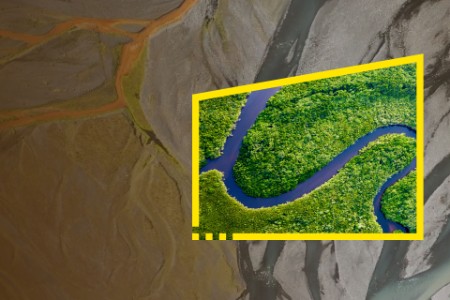The next step in the journey is to establish and deliver a range of strategic initiatives under these four pillars. The good news is we have already begun, with our bold carbon ambition, our work on inclusive capitalism and our incredible EY Ripples program. But we aren’t stopping here. There is much to do and engaging with our stakeholders on all of these strategic initiatives will be our priority.
The EY Net Zero Centre
The EY Net Zero Centre is a new initiative supporting clients to create impact in their decarbonisation agendas. The Centre helps governments and companies navigate the complex and evolving landscape of net zero challenges to transition and improve capacity to create long-term value.
With over two decades of experience in climate change, sustainability strategy and energy transition, the EY Net Zero Centre is EY new client resource, designed to navigate the opportunities and challenges of a net zero economy and create a flow-on impact for the planet.
Climate change response and ESG are now pivotal drivers of sustainable business transformation
Rather than only responding with individual sustainability strategies, climate change strategies, and ESG strategies, there is now a recognition of the need to address the ESG and climate change implications to the business’ overarching organisational strategy.
This reframe means leaders need to be clear about where they want to be on their journey, and where their risk appetite lies. Do they want to be market leaders? Do they want to be fast followers? Or are they happy being risk mitigators? Based on this, what are the actions they will take, and what level of effort will they commit to their response?
It’s then about being very deliberate around this decision. If a business decides it wants to be a market leader, it needs to also recognise that this comes with required action.
Within this process, transparency is key. There needs to be recognition that the more open a business is, the more empowered stakeholders become to make up their own minds. The consequence of this will be an expectation of action. But if a business has genuinely committed to action, then transparency should naturally flow.
ESG, sustainability and climate change: an exciting road ahead
While we are creating great momentum and putting a far greater focus on ESG, sustainability and climate change, one major challenge remains: businesses taking action now, at scale.
We need to be honest about real action. It will be a significant challenge, requiring a lot of focus and investment. We need to get past merely identifying what we are already doing in support of our agendas. It's not enough.
Businesses need to really push themselves and to consider a different way to move forward. It should be questioned if a business has really challenged the organisational strategy in a way that will generate the impact and change needed.
With the significant scale of transformation, and pervasive disruption from ESG and climate change, a new wave of opportunity is being created. By engaging in sustainable business transformation strategy in our work with clients, EY reinforces the need to a use value chain lens - to look at the end-to-end value chain rather than just a business’s own operations. EY is excited to help the clients prepare for transformation by assessing risks and opportunities and maximising outcomes.


